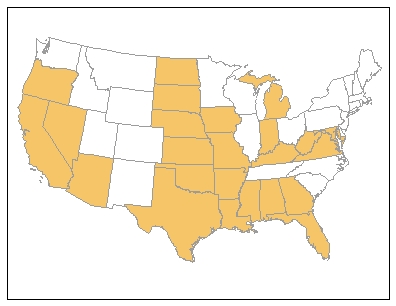
Endangered Species and How Honest Intentions Go Extinct
By Justin Williams
On every issue, whether its health care, taxes, or the environment, both sides give their points and counterpoints, the people are polled, and then comes the legislation. After the new bill hits the President’s desk and he signs it into law, the pundits end their polls and battles and move on to a different hot button issue.
But, of course, this is never where the story ends.
Most people do not realize what goes on behind the scenes after a law is enacted, and that’s a major reason why Public Choice Economics was invented. Take for example the Endangered Species Act (ESA). This bill, passed in 1973, with the stated intent was to protect the lives of certain important species of animals that were supposedly “endangered.”
Sounds innocent enough…even noble
Both sides usually agree that something has to be done on the issue, but then the debate moves to whether it should be done through private or public means. And that’s where the fleecing takes place.
The private plan would be what the United States did with the bison that was quickly going extinct. The private plan allowed ranchers to own, breed, and sell them just like cattle or chicken. As a result, now there are plenty of bison all around America, proving that the profit motive can save animals – without forcing the taxpayers to finance bureaucrats.
The public plan through the ESA, on the other hand, holds major negative consequences on economic activity. The bill authorizes the government “to acquire land for the conservation of listed species.” Not to mention the many other highly costly regulatory authority is given, including the statewide limitations of certain pesticides in various states (below from the USDA).
But what makes the ESA especially dangerous “solution” is that it gives government bureaucrats the power to take land and seize property at any cost.
And that’s not all.
The ESA gives the authority of the U.S. Fish and Wildlife Services’ (USFWS) funding to the Interior subcommittee of the House Appropriations committee. This committee holds substantial power over the bureaucrats who make key decisions in the ESA program.
Economists E. Patrick Rawls and David Laband have found that “for the entire 28 year period of [their] analysis [states with representation on the committee] had an estimated 46 fewer ESA listings than a state with no representation” on that committee. In other words, congressmen who sit on the committee use their budgetary powers to keep the number of ESA listings down
to protect their states’ economies.
What is even more interesting is that these economists found no empirical relationship between population density and the ESA listings, which seems counterintuitive, as conservation groups have often blamed population growth for the extinction of animals.
Public Choice Economics has been called “politics without romance,” and there is no doubt that the romance left a long time ago between congressional leaders and the cuddly animals that ESA was meant to save. Nowadays, as politicians simply are more interested in getting reelected than standing on principle.
So whether one agrees with the ESA or not, when a politician says “Save the Animals,” the one animal whose hide he protects is the two legged variety sitting behind the ornate desk in his own oak-paned congressional office.
And yet there’s more.
The truth is, these congressional leaders wouldn’t be caught dead proposing the highly successful privatization, as in the case of the bison, since that would remove a powerful tool for reelection.
So the next time there is a hotly debated issue, the solution is not to hand important powers to Congress and bureaucrats, since the only endangered species they really care about is the American taxpayer – only so that they can continue to sheer them on a daily basis.
Justin Williams is the Senior Commentary Editor of ALG News Bureau and, as always, he accepts any questions or comments about the Barstool Economist at Justin@getliberty.org.



